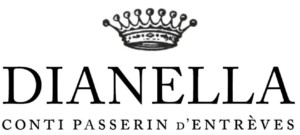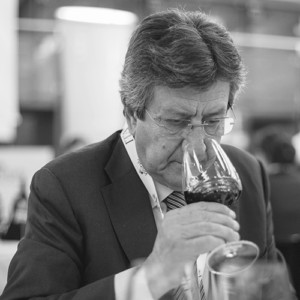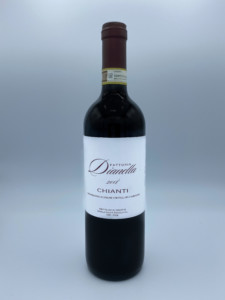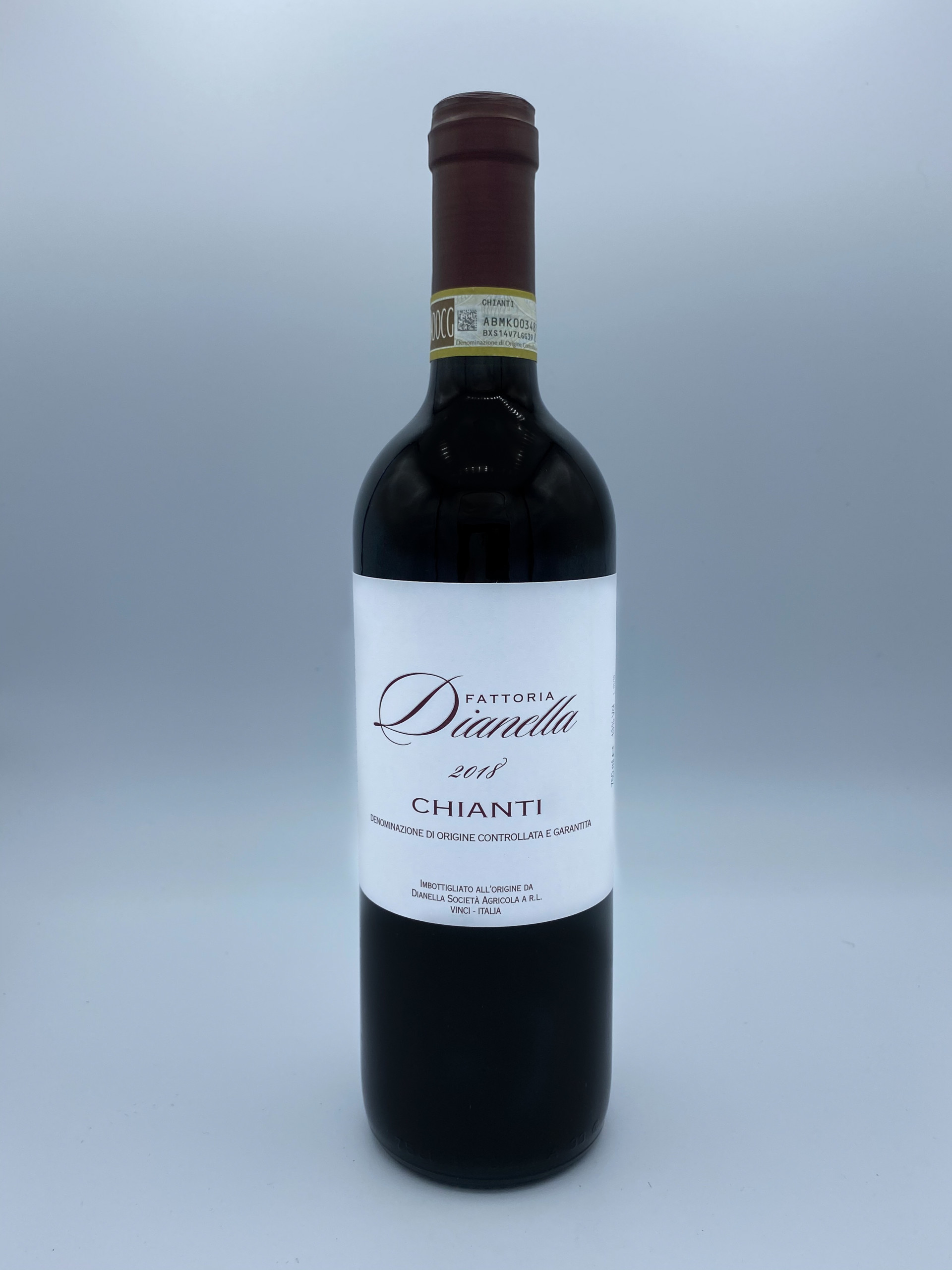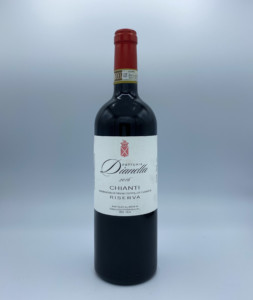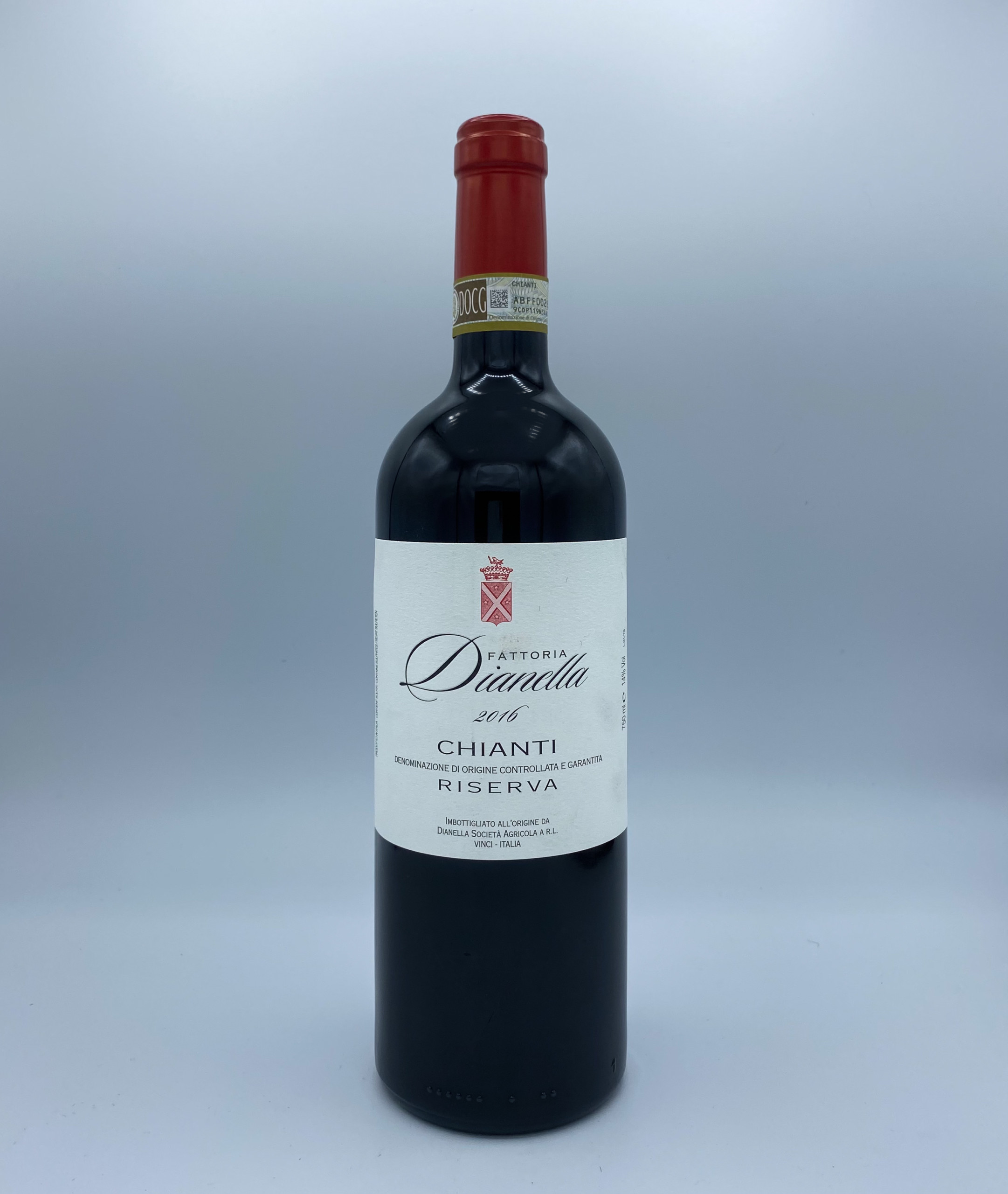Fattoria Dianella
About
Owners: Francesco & Veronica Passerin d’Entrèves
Winemaker: Franco Bernabei
Vineyards: 26ha across ten plots, all estate-owned
Vineyard management: Practicing organic since 2006, certified since 2015
Soils: Sand and clay with a high mineral content
Grapes grown: Sangiovese, Colorino, Cabernet Sauvignon, Vermentino, Malvasia Lunga del Chianti
Annual production: 140,000 bottles
Quick facts:
- The villa at Dianella originally belonged to the Medici family–it was one of their hunting lodges, named for Diana, the goddess of the hunt.
- Veronica Passerin d’Entrèves took over from her father in 2003 and soon began the conversion to organic farming.
- The Dianella Chianti has been renowned for centuries and was even served for official lunches at the presidential palace in the 1950s and 60s.
Dianella’s winemaking tradition extends back to the late 1600s, chronicling a history of viticulture and oenology in Tuscany of over 300 years. Since the beginning of the 19th century, Dianella’s Chianti could be found at the best Italian trattorias and restaurants, and in the 20th century it even made its way to the president’s table in Quirinale Palace. Dianella’s contemporary history began in 2003, when Francesco and Veronica Passerin d’Entrèves moved to the property to modernize the estate’s agriculture and tourism. Throughout the renovation process they aimed to respect the terroir’s traditions while innovating in both the vineyard and cellar. In 2004 the winemaking duties were handed over to Franco Bernabei, a strong supporter of terroir-focused wines, organic farming, and local grape varieties, especially Sangiovese, the grape most prevalent at the estate. Dianella’s careful and sustainable approach is reflected not only in its wines, but also in its other products, ranging from olive oil to cosmetics.
The soils in this part of the Chianti appellation were once the coastline of the Pliocene sea. They’re composed mainly of sand and clay, interspersed with marine fossils. The oldest vines date back to 1956, while about 50% were replanted between 2003 and 2008, after Veronica took over. She chose to replant with a focus on mono-clonality in order to improve the overall quality of the fruit. They farm organically with a focus on biodiversity and soil health. Native plant species, including grasses, legumes, and mustards, are allowed to spontaneously flourish between the rows–their roots aerate the soil while also preventing erosion on hillside sites. They’re also working to reduce the use of copper, which, although permitted in organic agriculture, poses concerns about build-up in the soil. Vineyard plots are harvested and vinified separately in stainless steel tanks, undergo malolactic fermentation in cement, then age in various sizes of oak barriques and barrels.

